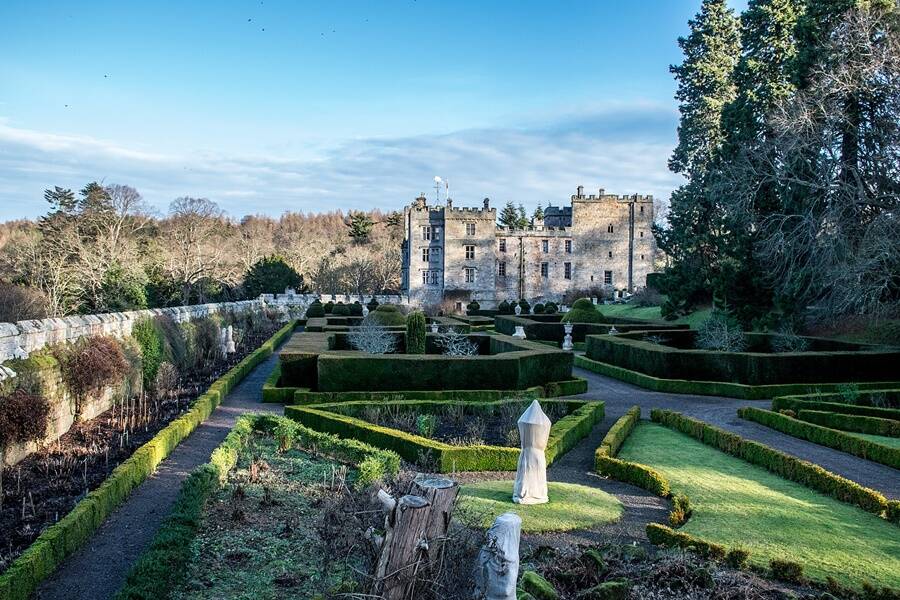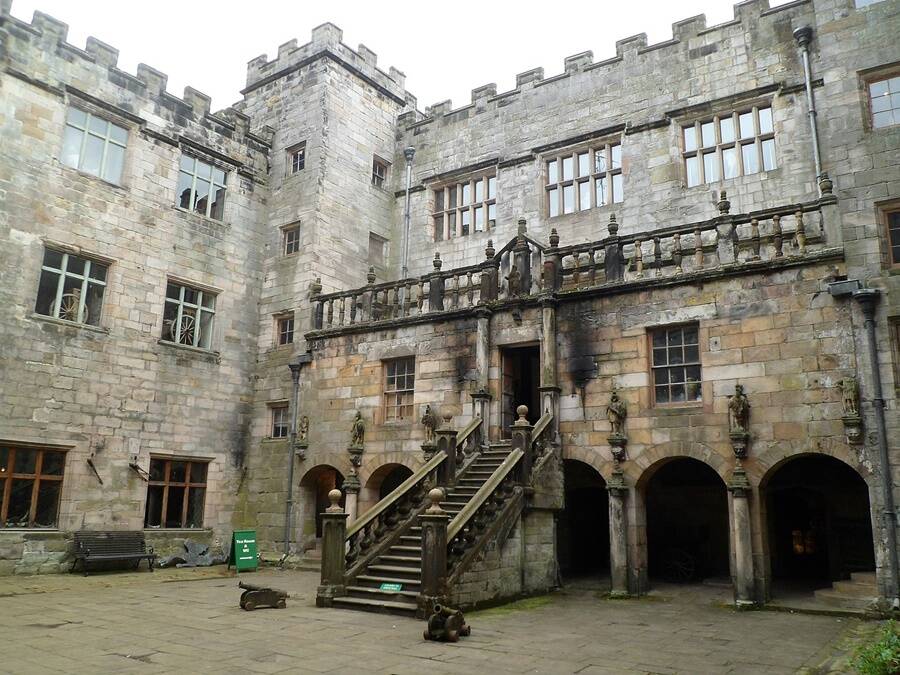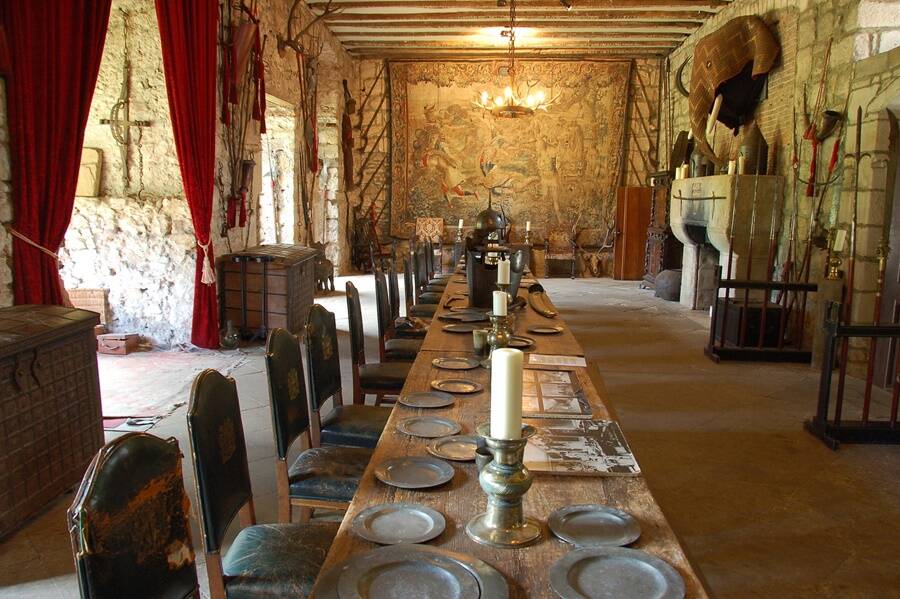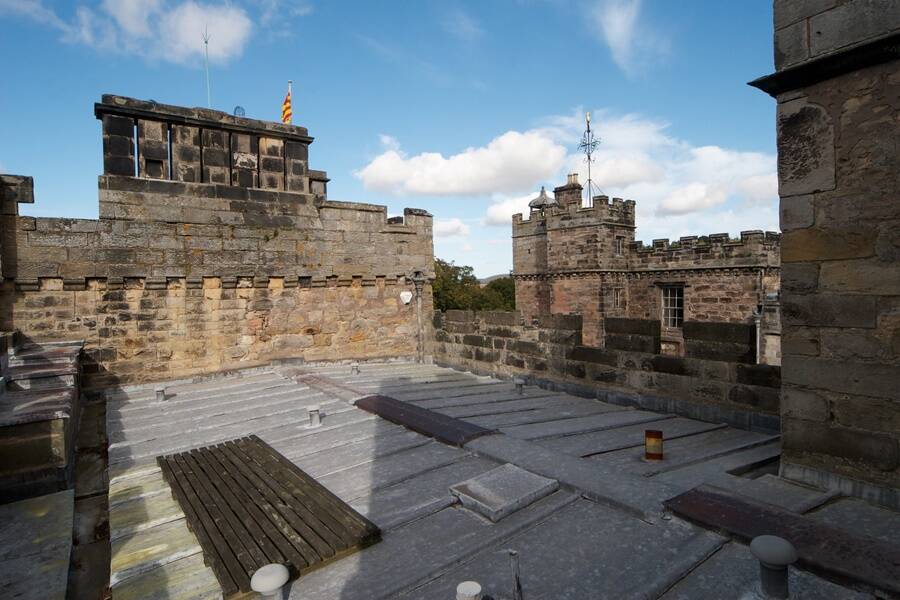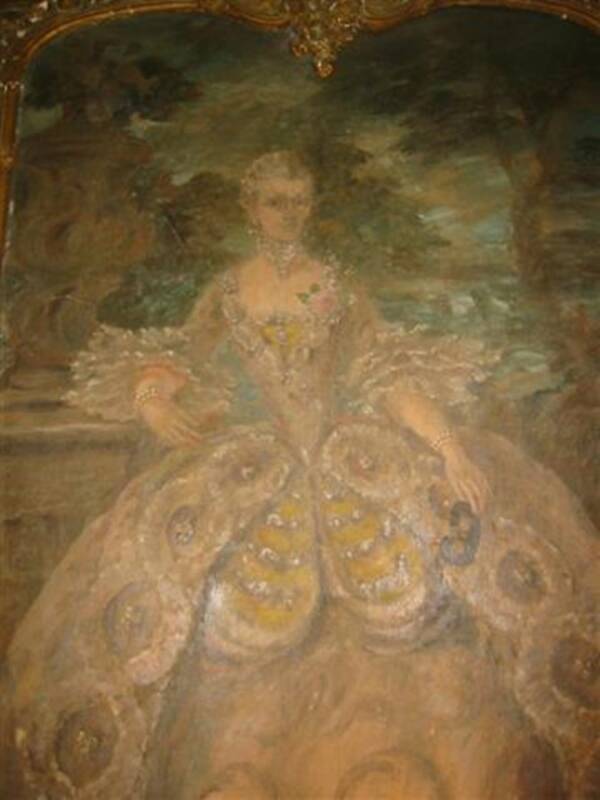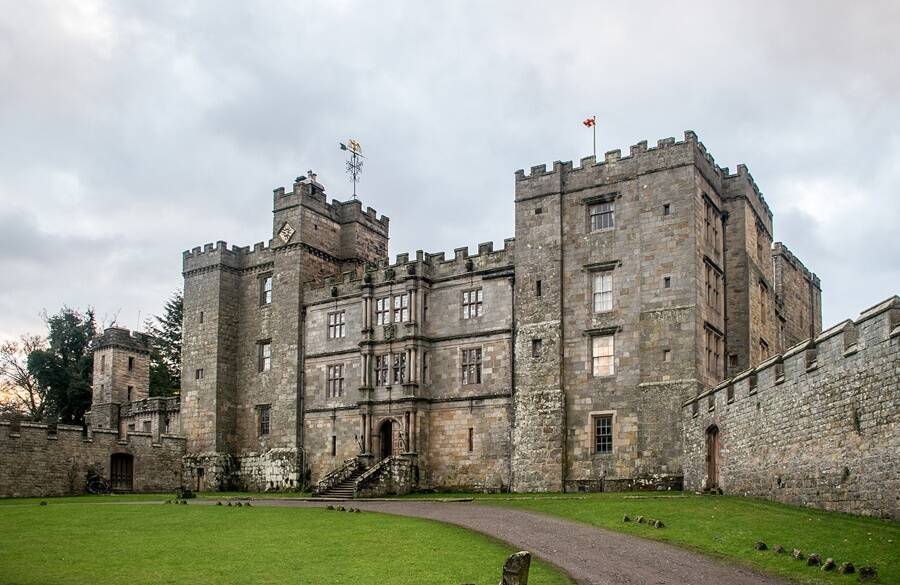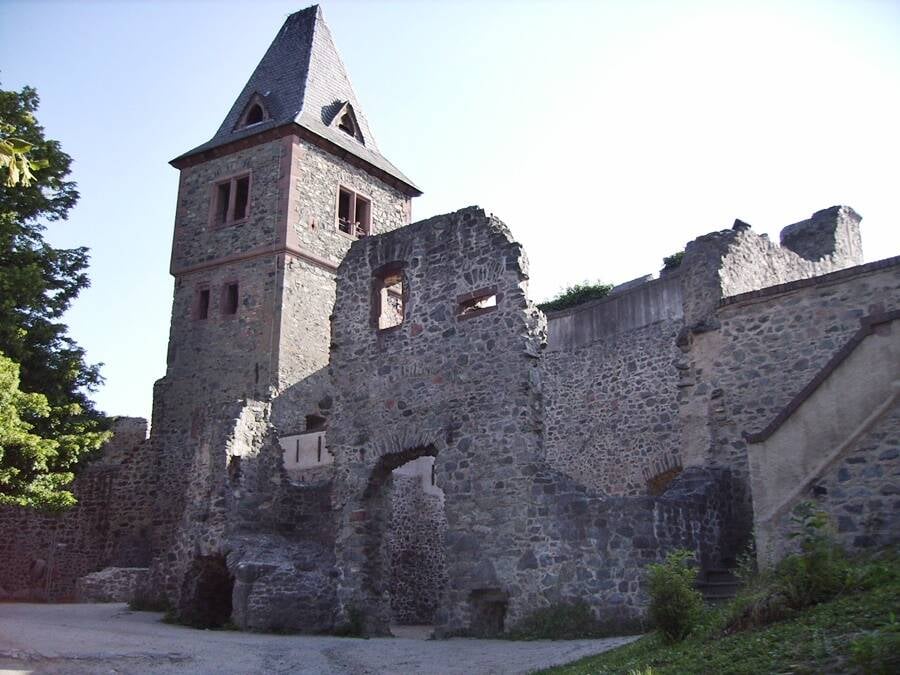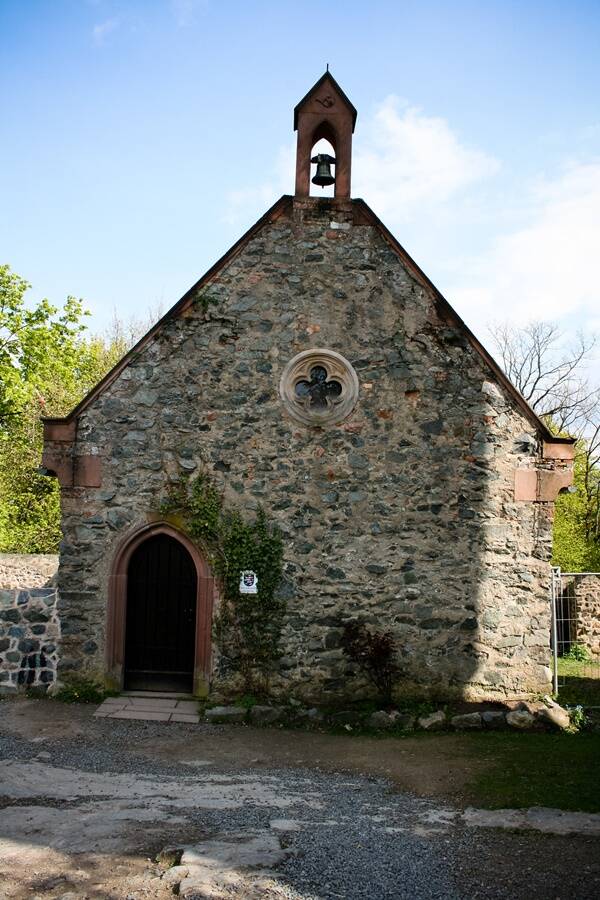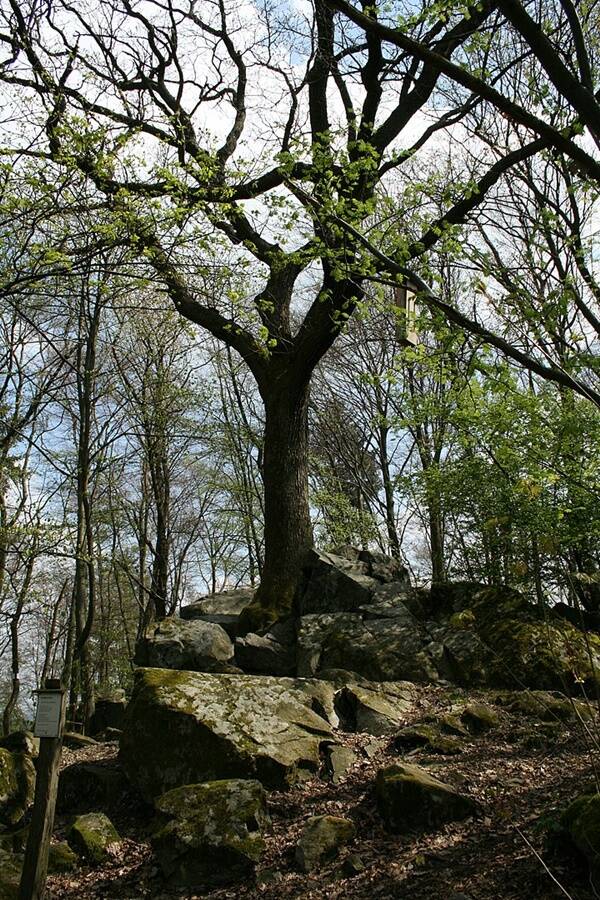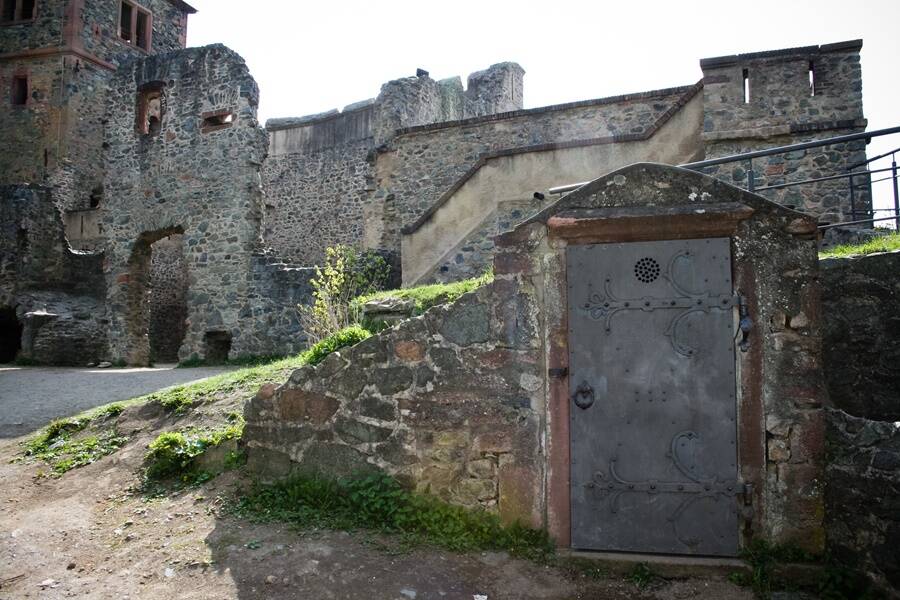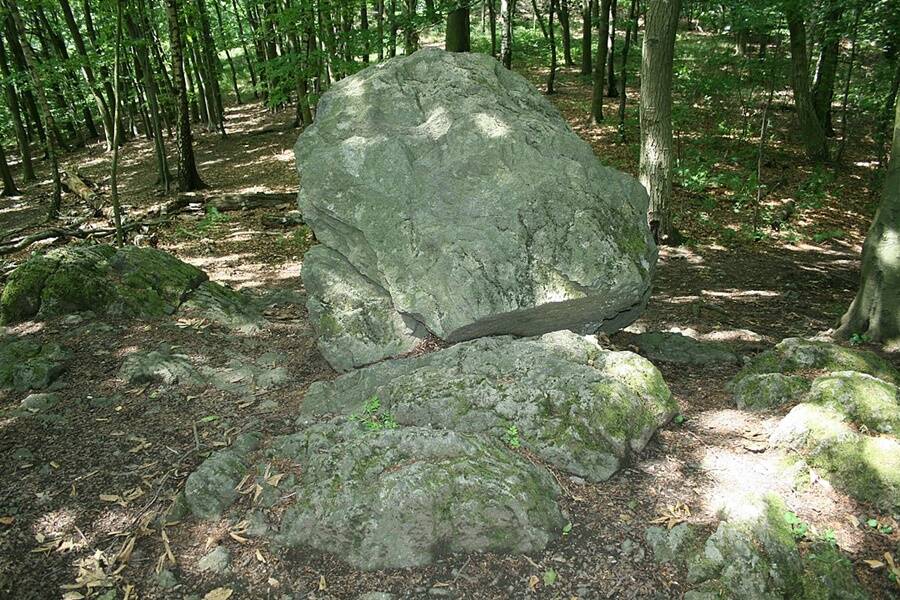History’s Most Haunted Castles: Chillingham Castle In England
With the right lighting and pleasant weather, Chillingham Castle almost looks beautiful. Tea rooms, lush gardens, and even a private lake can be found on its grounds — but don't be fooled. This 13th-century fortress in Northumberland, England, has been dubbed "the most haunted historic castle in all of Britain."
Chillingham Castle famously boasts some of the highest levels of paranormal activity in the country. Countless visitor accounts describe horrifying apparitions, and Chillingham has been the subject of paranormal investigations by television shows like Scariest Places on Earth and Ghost Hunters International.
Even the American poet Henry Wadsworth Longfellow described Chillingham as a hot spot for the supernatural:
"All houses wherein men have lived and died
Are haunted houses. Through the open doors
The harmless phantoms on their errands glide,
With feet that make no sound upon the floors."
Among the castle's more famous spirits are the ghosts of Lady Mary Berkeley, a former resident whose husband had an affair with her sister. It is said that Mary's spirit still roams the grand hallways of Chillingham, particularly the apartment where she allegedly died from a broken heart.
There is also the apparition known as the "Blue Boy." This glowing spirit reportedly used to appear at the stroke of midnight to guests sleeping in the castle's Pink Room. Then, during renovations to Chillingham in the 1920s, workers found the skeleton of a child in the walls. The remains were given a proper burial — and the Blue Boy hasn't been seen since.
This haunted castle is open to the public today, and its late-night ghost tours are particularly popular.
Did Castle Frankenstein Inspire Mary Shelley?
Surrounded by dense forest with a history of witchcraft and alchemy, Castle Frankenstein is among the most notorious haunted castles of Europe.
Although the name "Frankenstein" is shared by many other landmarks in Germany, the 13th-century castle's moniker has special meaning, given its alleged ties to Mary Shelley, the author of the classic 1818 novel Frankenstein.
Castle Frankenstein was built in 1250 by the founder of the Barony of Frankenstein. It fell under the ownership of various families over the centuries, but the main story behind its alleged hauntings began in 1673, when Johann Konrad Dippel was born at the palace.
He grew up to be an eccentric scientist who was obsessed with alchemy, and he carried out many bizarre experiments within Castle Frankenstein's walls. Dippel allegedly conducted gruesome studies on animal carcasses — and human body parts stolen from a nearby cemetery. He also created a mysterious concoction dubbed "Dippel's Oil," which was a distillation of blood, leather, horns, and ivory that he proclaimed to be the "elixir of life" that could cure any ailment.
Dippel's antics supposedly upset the local mayor, who spread rumors that Dippel was the blood brother of the Devil and that he was trying to create some kind of monster in the castle's laboratory. Does this story sound familiar?
Legend has it that the Brothers Grimm told Mary Shelley's stepmother about Dippel's disturbing background, and if the rumors made their way to Shelley, they may have inspired Frankenstein. Shelley herself also traveled through the area in 1814, just a few years before she wrote her masterpiece.
It's also said that the forest around the haunted castle is a popular site for magical gatherings in Germany and that witches frequent the remote area to drink from a "fountain of youth" located on the property.
Castle Frankenstein comes alive every year during Halloween, when the monstrous estate is transformed into a real-life haunted castle as actors playing ghosts and goblins wander about for one of the largest Halloween bashes in the country.
